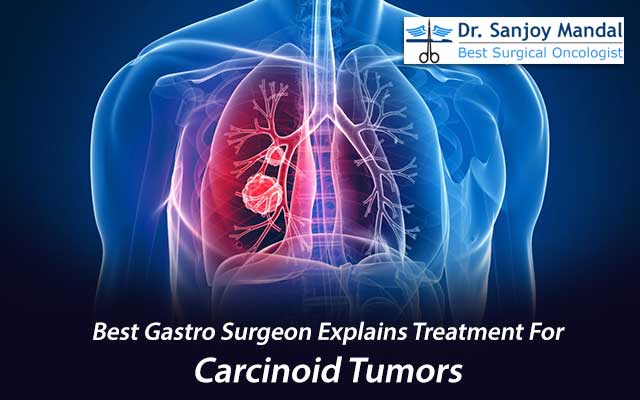There’s a lot to take in if your doctor tells you that you have a carcinoid tumour. It is a rare kind of cancer, but unlike some others, it can begin in more than one part of the body. And depending on where you get it, you could have various symptoms, ranging from stomach pain to a bad cough, says Dr. Sanjoy Mandal, the best gastro surgeon in Kolkata.
No matter where they appear, carcinoid tumors affect cells that produce hormones. Carcinoid tumors are one subset of tumours called neuroendocrine tumors (NETs).
Most carcinoid tumours begin in one of two places: your lungs or your digestive tract, also known as the GI tract. This includes your stomach, small intestine, colon, appendix and rectum.
Although it is less common, carcinoid tumours can also begin in the pancreas, testicles and ovaries.
Treatment
Treatment for a carcinoid tumour is defined by its location, whether cancer has spread to other body parts, patient’s overall health and personal preferences. Treatment options for carcinoid tumours include:
Surgery
When detected early, a carcinoid tumour can be surgically extracted. Complete extraction may be impossible if carcinoid tumours are discovered in an advanced stage. In some cases, surgeons may attempt to remove as much of the tumour as possible to control signs and symptoms, says the gastrointestinal surgeon in Kolkata.
Medications
Medications that block tumour-secreted hormones can reduce carcinoid tumour symptoms and slow tumour growth. Octreotide is an injection that is typically used for carcinoid tumours. Abdominal pain, bloating and diarrhoea are possible side effects of this medication. Telotristat is a pill that is sometimes used in conjunction with octreotide to improve carcinoid tumour symptoms.
Chemotherapy
Chemotherapy employs the use of powerful drugs to kill carcinoid tumour cells. Chemotherapy is sometimes used to treat advanced carcinoid tumours that cannot be extracted surgically, says the best gastro surgeon in Kolkata.
Targeted drug therapy
Targeted drug therapies target specific abnormalities found in carcinoid tumour cells. Targeted drug therapy can cause tumour cells to die by blocking these abnormalities. For advanced carcinoid tumours, targeted drug therapy is usually combined with chemotherapy.
PRRT
PRRT (peptide receptor radionuclide therapy) combines a drug that targets cancer cells with a radioactive substance that kills them. The drug is injected into your body, where it travels to the cancer cells, binds to them and delivers the radiation directly to them. For people with advanced carcinoid tumours, this therapy can be an option, says Dr Sanjoy Mandal, the best gastroenterology doctor in Kolkata.
